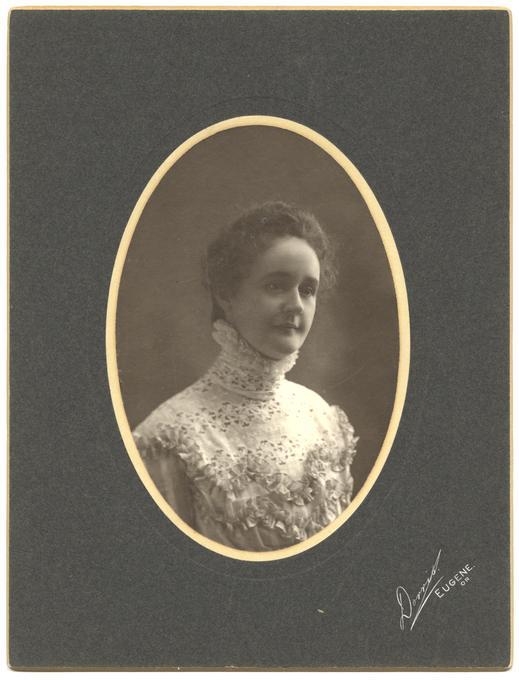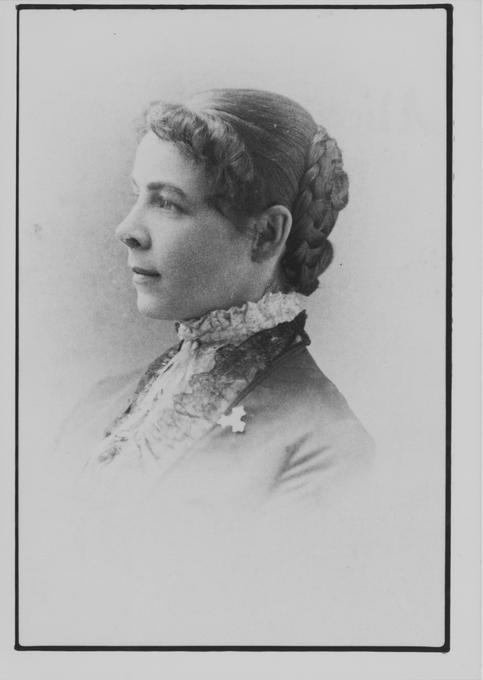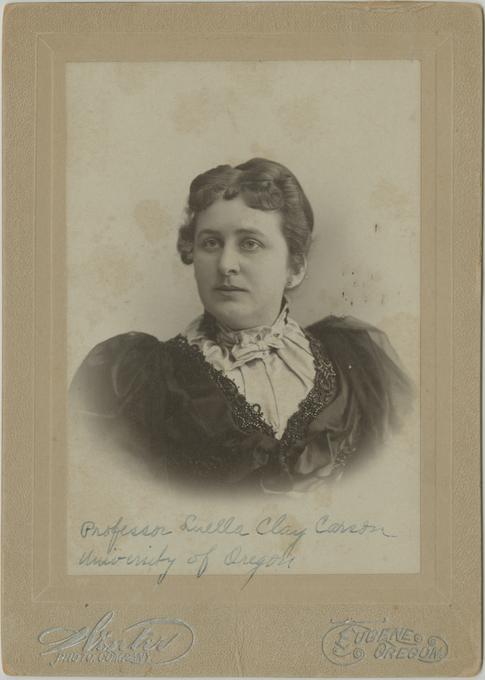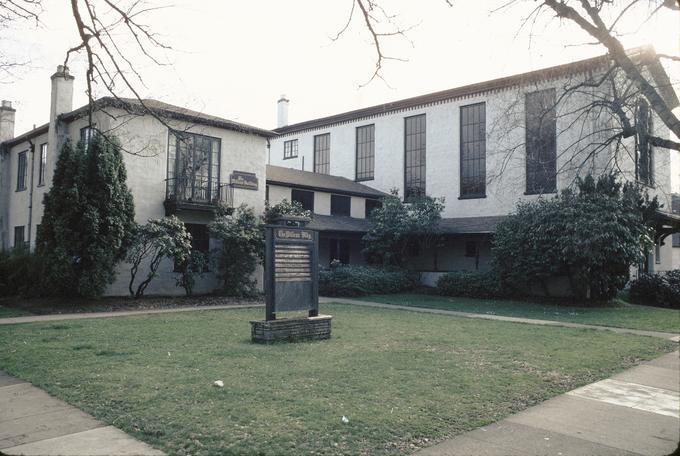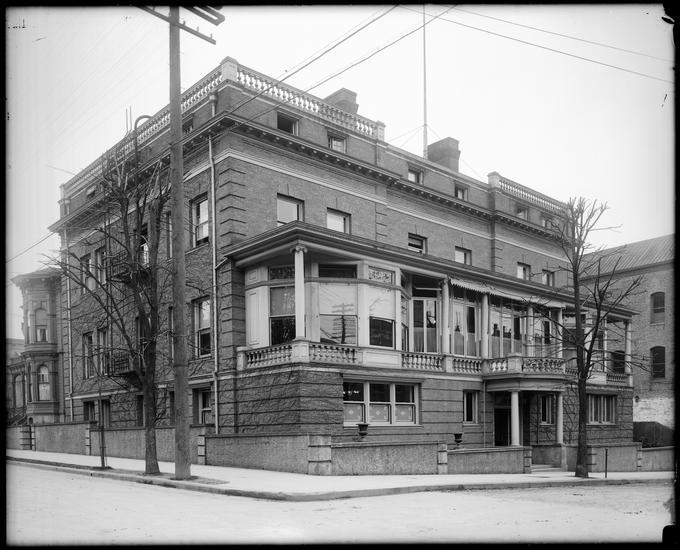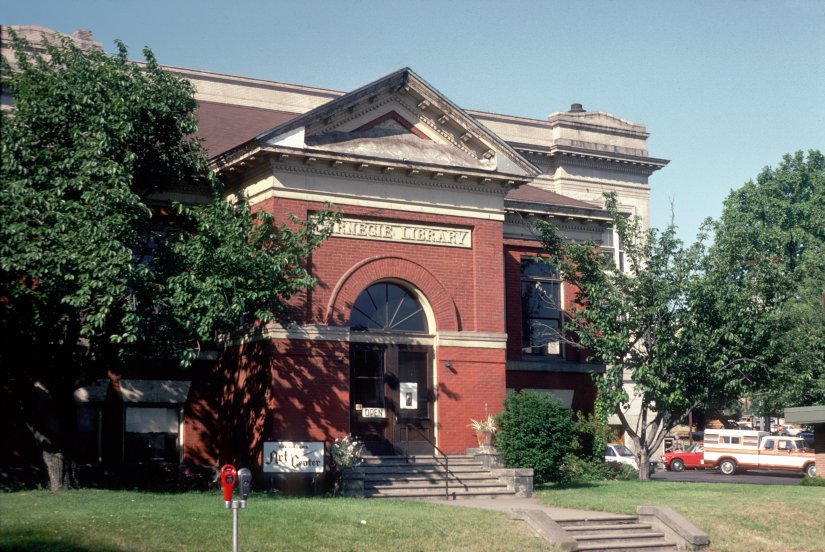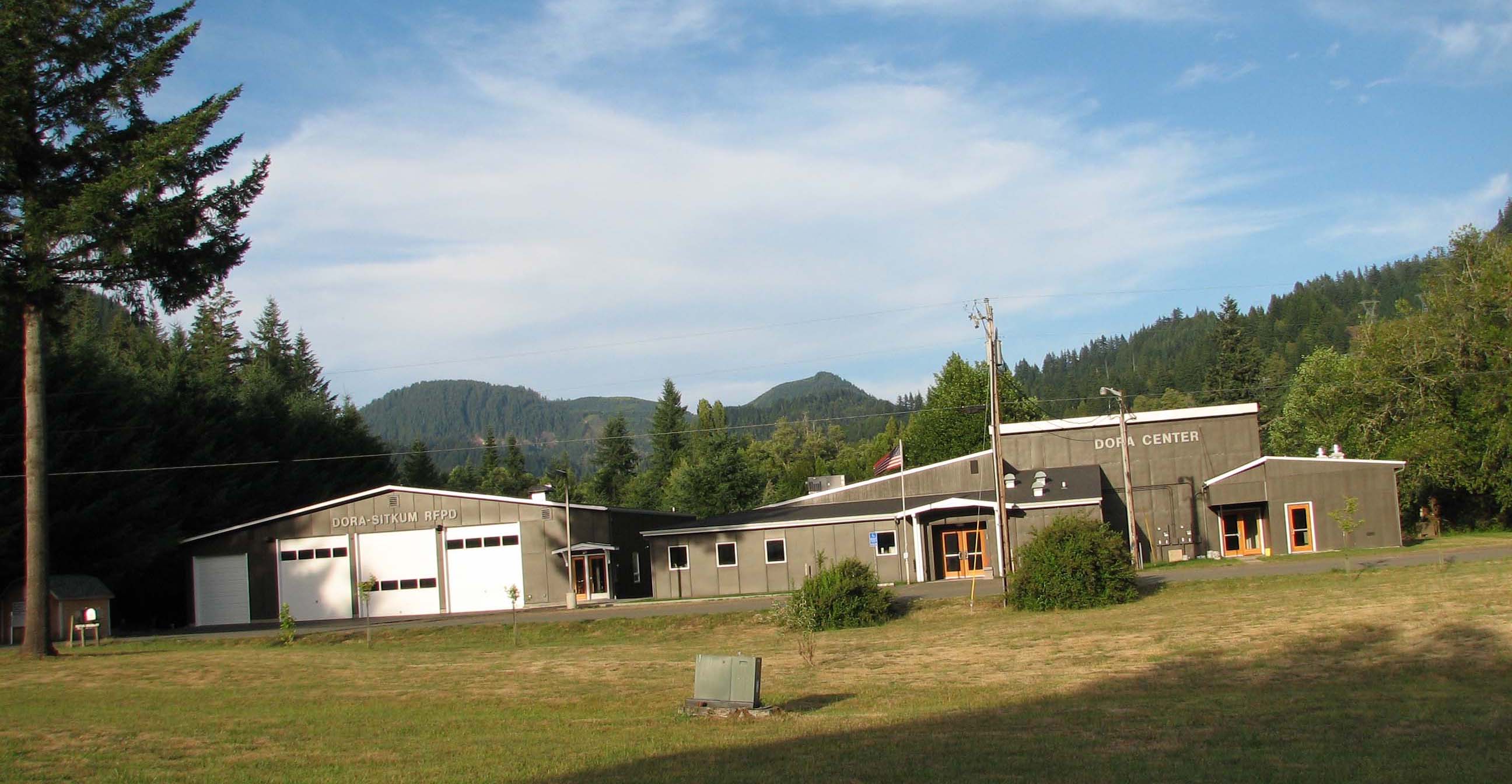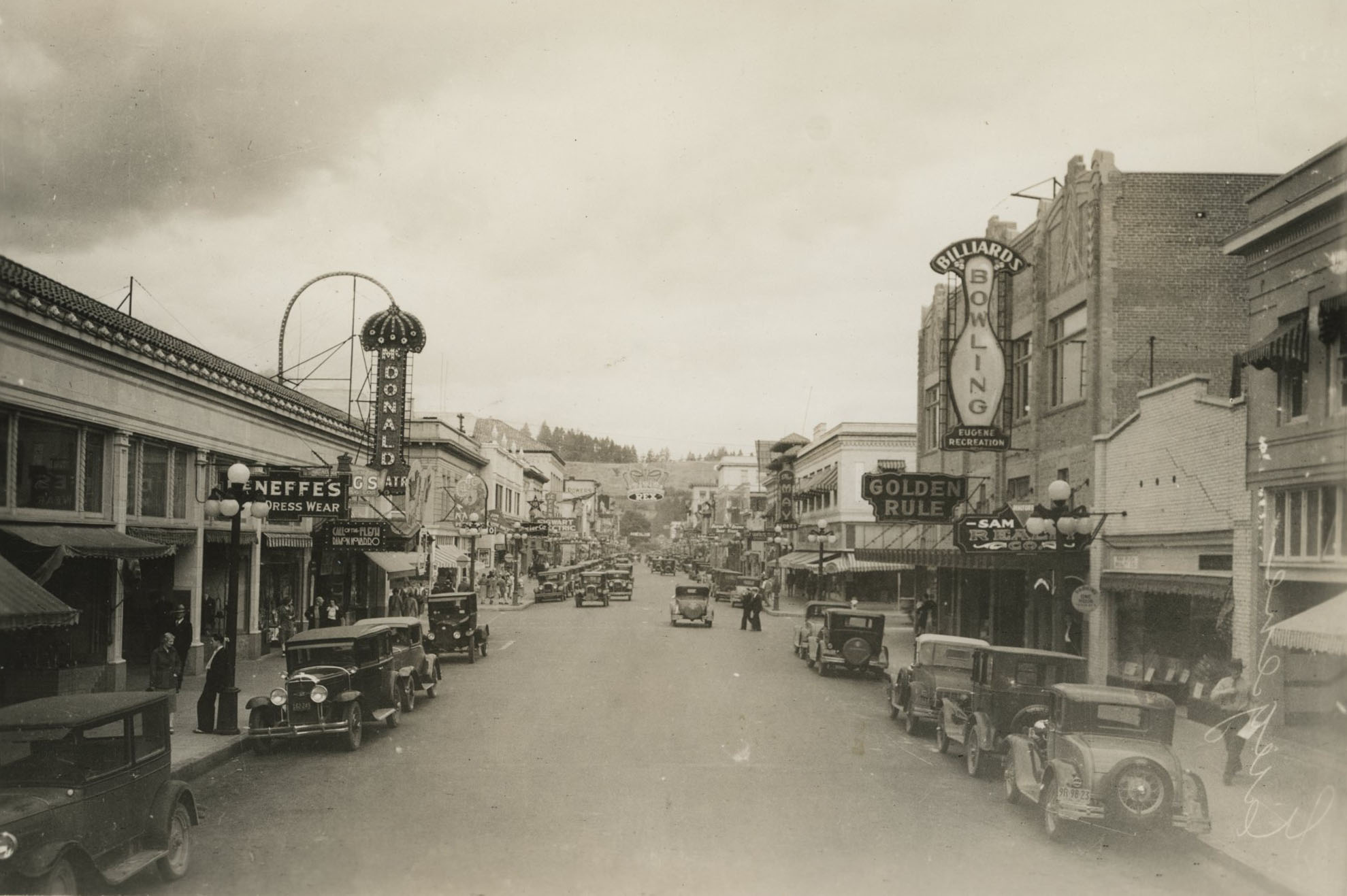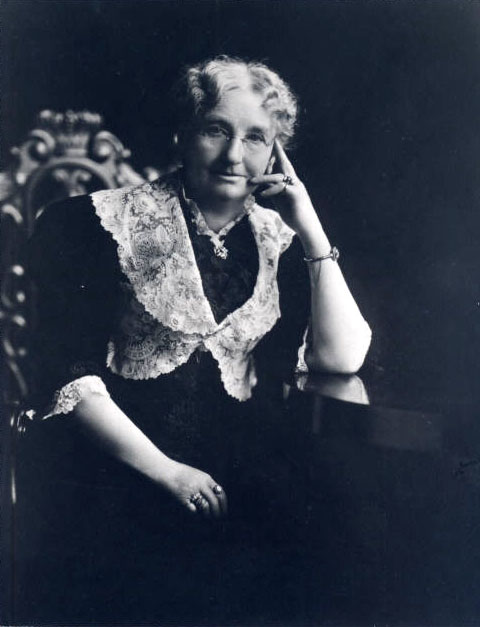Fortnightly Club of Eugene is a women’s study group started in 1893 “to bring together women interested in artistic, economic, philanthropic, literary, and scientific pursuits with a view of rendering them helpful to each other and useful to society.” The first such organization for women in Oregon, the club was influential in establishing Eugene’s first public library. In 1906, club members spearheaded a campaign that won the first Carnegie grant in Oregon to allow construction of a library building and expansion of the book collection. The purpose of the club in the twenty-first century is “to promote a sense of community among members, a strong intellectual vigor in the group, and to encourage regular attendance and engaging discussions.”
Dr. Alice Hall Chapman, who earned a medical degree from Woman’s Medical College in Philadelphia, was the wife of Charles H. Chapman, the University of Oregon’s second president. In 1893, she convened thirty-two women in a small room over a grocery to propose a women’s literary club, modeled after the Sorosis Club, a New York City literary group whose name was taken from a term designating plants that flower and bear fruit. By January 1894, twenty-two women from the University of Oregon and the community had elected officers and founded the Fortnightly Club of Eugene. Chapman served as president in 1894–1895 and 1898–1899.
The first members of Fortnightly included Helen Bushnell, who helped start the first Women’s Christian Temperance Union in Eugene; Luella Clay Carson, who taught English composition and elocution at the University of Oregon and was dean of women beginning in 1895; and Sybil Sumner Collier, an authority on tree and flower species. Lulu Sawyer Linn taught voice and violin in the University of Oregon School of Music; Mary McCornack was head of the University of Oregon School of Music; and Addie Osburn, club president in 1895–1896, established the first Scholarship Loan Fund at the university.
The club’s first major project was to form and staff a subscription library, which they established in 1895 in a space downtown made available by a Eugene businessman. An annual fee of a dollar entitled subscribers to borrow one book or magazine per week. In 1902, the club appealed for a city tax levy to establish the city’s first public library, and by 1906 Eugene had the first Carnegie-funded library in Oregon. Fortnightly member Helen Bushnell was the librarian.
Fortnightly raised $1,500 a few decades later to help design a more spacious public library, which was completed in 1959. The club procured a bookmobile for the city three years later. In the 1990s, club members played a key role in the capital campaign for Eugene’s current library, which opened in 2002, and raised $35,000 for a stained glass window for the building designed by John Rose.
Since 1929, the club has been limited to fifty active members who represent a balance between the town and the university. Women of any age, race, or ethnicity, and sexual orientation or gender identity are eligible for membership, which is typically drawn from Eugene, Springfield, and surrounding communities. When vacancies occur, members nominate candidates, who are then elected by the Executive Board. All members pay dues. In 2020, the age of members with active status ranged from forty to the late eighties. After twelve years of active membership, a member may apply for associate status, which relieves her of the requirements of active membership. Members remain on the roster for life.
Active members are required to present a research paper every three or four years and to serve as officers and on committees. During Fortnightly’s first ten years, the topics presented at each meeting centered largely on European and American literature and arts, with an occasional talk on theology and statesmen. In its second decade, programs focused on history, foreign countries, American and world affairs, and American culture and notable figures, as well as the arts and literature. Themes often reflected members’ concern with current events. In 1912–1913, eugenics was the topic of study, and programs during World War I included talks on war and the United States’ role as a world power. The club’s Civics Department suspended its program work in 1917–1918 to assist the Red Cross.
Throughout the years, the study of the status and role of women and children has been of primary interest to members. Immigration was a theme in 1922–1923 and 2014–2015. Two programs were devoted to libraries—one in 1956-1957 and another in 2002-2003, years when libraries were under construction in Eugene. Recent themes include film, food, espionage, the Supreme Court, human migration, humor, money, and the Declaration of Independence.
Fortnightly Club members meet twice a month from October to May. After meeting for years in the library, the Very Little Theater, the YWCA, and members’ homes, the club has rented space in the First Congregational Church since 1957. Officers are elected each year, and standing committees have responsibility for program topics, the club’s relationship with public libraries, membership, and other activities.
More recent members of the Fortnightly Club include Hope Pressman, an art collector and philanthropist who received Eugene’s First Citizen award in 1987; Adell McMillan, director of the Erb Memorial Union and author of A Common Ground: Erb Memorial Union 1950-1990 (2003); Sharon Posner, co-producer of the television news program Inside Story; Hue-Ping Lin, the owner of White Lotus Gallery; Judith R. Baskin, Associate Dean for Humanities and Philip H. Knight Professor of Humanities at the University of Oregon; and Barbara Dellenback, KLCC radio host and owner of Lives Recorded Live.
Fortnightly Club records are held in the Special Collections and University Archives at the University of Oregon Library.
-
![]()
Lulu Sawyer, 1895.
Courtesy University of Oregon Libraries
-
![]()
Alice Hall Chapman.
Courtesy University of Oregon Libraries
-
![]()
Luella Clay Carson.
Courtesy University of Oregon Libraries
-
![]()
First Congregational Church, Eugene.
Courtesy University of Oregon Libraries, pna_16502
Related Entries
-
![Arlington Club]()
Arlington Club
In 1910, the exclusive, all-male Arlington Club built its permanent hom…
-
![Carnegie Libraries in Oregon]()
Carnegie Libraries in Oregon
Of the 1,679 public library buildings funded in the United States by An…
-
![Dora Friendly Club]()
Dora Friendly Club
The Dora Friendly Club is a rural women’s club in eastern Coos County t…
-
![Eugene]()
Eugene
Eugene is a metropolitan center at the head of the Willamette Valley, a…
-
![Portland Women's Union]()
Portland Women's Union
The Portland Women’s Union was the first all-women volunteer organizati…
Map This on the Oregon History WayFinder
The Oregon History Wayfinder is an interactive map that identifies significant places, people, and events in Oregon history.
Further Reading
“1943 is 50th Year for Fortnightly.” Eugene Register Guard, December 13, 1943.
“A club for all ages." Eugene Register Guard, April 2, 2014.
“A Rich History,” Eugene Public Library Foundation. (eplfoundation.org).
*The Constitution & Bylaws, Customs and Traditions, November 2015, Fortnightly Club of Eugene.
Costello, Ann Dodds, Smart Women: The Search for America’s Historic All-Women Study Clubs. Morrisville, N.C.: Lulu Publishing Services, 2015.
*Kibbey, Nancy E., “The History of the Fortnightly Club of Eugene,” Eugene, Ore.: Fortnightly Club, 2010.

